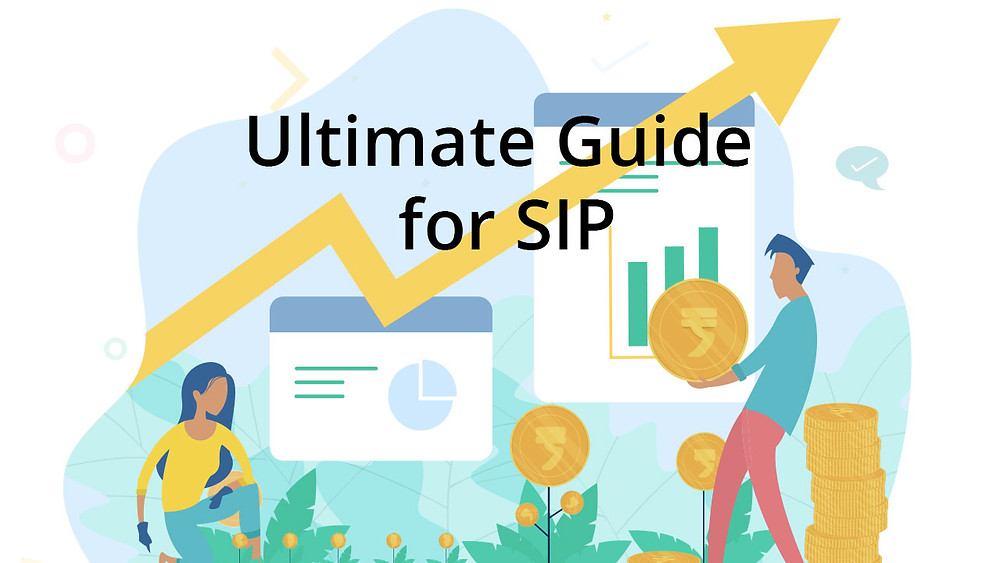
If you’re someone who takes the time to invest in the stock market, you might have heard of systematic investment plans or SIPs. Although this term might be familiar to you, you may not know all that much about how these plans work or if they’re right for your investing strategy. Luckily, you’ve come to the right place to learn everything you need to know about systematic investment plans and whether they can help with your portfolio management needs.
What is an SIP?

A systematic investment plan is an investing strategy whereby investors commit to investing a fixed sum of money at regular intervals in order to achieve their financial goals. This type of investing allows investors to dollar-cost average into their positions, which can help reduce the effects of volatility and market timing. SIPs can be used to invest in a wide variety of asset classes, including stocks, bonds, mutual funds, and exchange-traded funds.
If you’re not an active trader, SIPs can be a great way to systematically increase your exposure to certain asset classes while creating an overall plan for reaching your investment goals. As SIP investors typically tie up their money for long periods of time, they don’t have as much access to their capital as regular traders would, which can limit one’s ability to trade in response to short-term market fluctuations. This is part of what makes dollar-cost averaging advantageous over short-term trading – it smooths out portfolio gains and losses over time by helping mitigate risk and volatility. By committing a fixed amount at regular intervals, investors are also able to avoid timing or market underperformance, making SIP investing much more passive than it seems at first glance.
Benefits of SIPs

Systematic investment plans are a great way to invest your money. They offer several benefits, including:
- SIPs help you discipline your spending and force you to save regularly.
- They provide a way to invest small amounts of money over time, which can be helpful if you don’t have a lot of money to invest all at once.
- SIPs can help you reach your financial goals sooner than if you had simply saved your money in a bank account.
- They offer the potential for higher returns than other types of investments, such as bonds or CDs.
- SIPs can be used to invest in a variety of assets, including stocks, mutual funds, and ETFs.
Things to consider before you start investing in an SIP

Systematic investment plans are a great way to start investing, but there are a few things you should consider before you start investing in one. First, you need to make sure that you have a clear investment goal in mind. What are you trying to achieve with your investment? Second, you need to make sure that you understand how much risk you’re willing to take on. SIPs can be volatile, so it’s important to make sure that you’re comfortable with the level of risk involved. Third, you need to make sure that you have the financial resources available to commit to an SIP. Fourth, you need to make sure that you have the time and patience required to stick with an SIP for the long haul.
The key factor in deciding if an SIP is right for you is your investment horizon. If you want to achieve higher returns, it’s worth considering alternative options such as equity or real estate investments. However, if you want to buy and hold investments with a longer investment time frame, SIPs are generally a good idea. Even though they have drawbacks like added expenses and taxes, they are still a viable option when compared with other long-term investment products. To find out more about whether SIPs are suitable for your situation, contact your financial advisor today. Your financial advisor can help guide you through important decisions regarding what kind of investing strategy is best for you.
How do I start investing in an SIP?

The first step is to choose the right investment platform. There are a lot of different options out there, so it’s important to do your research and find one that fits your needs. Once you’ve found a platform you’re comfortable with, the next step is to open an account and deposit money into it. Once your account is funded, you can start investing in SIPs. Systematic Investment Plans (SIPs) are a great way to invest your money and grow your wealth over time. They offer a number of benefits, including the ability to invest small amounts of money regularly, the power of compounding, and the opportunity to build a diversified portfolio.
The most common way to invest in an SIP is through mutual funds. Mutual funds are a popular investment option because they’re relatively easy and low-cost, which makes them ideal for beginning investors. There are no commissions or broker fees associated with an SIP, so all you need to do is pick a mutual fund and make a deposit. Many mutual funds also allow you to set up recurring investments, which means your money will be automatically withdrawn from your bank account on a regular basis and invested in the fund of your choice. This is known as Automatic Withdrawal Plan (AWP), or electronic payment mode of investment.
Where can I invest in an SIP?
You can invest in an SIP through a number of financial institutions, including banks, credit unions, and online brokers. When you invest in an SIP, you’re essentially buying shares of a mutual fund or exchange-traded fund (ETF) on a regular basis. And just like with any other investment, there are risks involved with investing in an SIP. But if you’re disciplined about investing on a regular basis and you have a long-term investment horizon, an SIP can be a great way to grow your wealth.
Where you can invest in an SIP depends on your country. In India, for example, ICICI Bank offers a diverse selection of mutual funds and ETFs through its online brokerage platform, as do many other banks and online brokers in various countries. You should also check with your existing financial institution to see if it offers SIP investments for individual investors. Even if it doesn’t, it may offer investment accounts that work well for regular investing, such as target-date funds or managed accounts. And most importantly, you don’t need a lot of money to get started with an SIP.